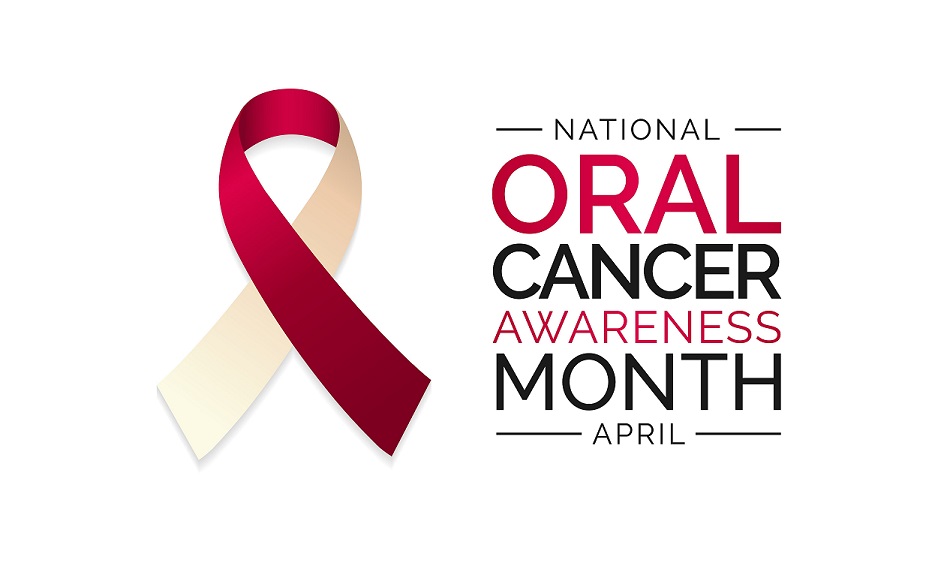
April is Oral Cancer Awareness Month, an annual observation that underscores the fact that early detection of oral cancer can decrease morbidity and increase long-term survival.
The observance also emphasizes the importance of making oral cancer screenings part of the dental exam routine. This is especially true given that due to human papillomavirus infection, head and neck cancers are occurring in those in whom the typical risk factors of cigarette smoking and alcohol consumption may not be present.
Risk Factors
Research has identified several factors that may contribute to the developing of oral and oropharyngeal cancers. Historically, those at an exceptionally high risk of developing oral cancer have been heavy drinkers and smokers older than 50. Still, cancer occurs more frequently in nonsmoking people today due to HPV16, the virus most commonly associated with cervical cancer. About ten percent of oral cancers occur in individuals with no known risk factors. They share no fundamental commonalities, and they may be due to an unidentified genetic frailty yet to be discovered.
The sexually transmitted human papillomavirus 16 (HPV) is related to the increasing incidence of oropharyngeal cancer (most commonly involving lymphoid tissue in the tonsils or the base of the tongue). Approximately 99 percent of people who develop an HPV oral infection will clear the virus independently. In approximately one percent of individuals, the immune system will not clear the virus, and it can lay dormant for decades before potentially causing cancer. This occurs mainly in a non-smoking population composed of males four to one over females.
If you have never had an oral cancer examination, there is no better time to schedule one than during Oral Cancer Awareness Month in April. When you do, be sure to ask that this examination be a routine part of all your future dental check-ups.
Signs and symptoms of oral cancer, which is predominantly caused by tobacco usage and/or excessive alcohol usage, may include one or more of the following:
Any sore or ulceration that does not heal within 14 days.
A red, white, or black discoloration of the mouth’s soft tissues.
Any abnormality that bleeds easily when touched (friable).
A lump or hard spot in the tissue, usually the border of the tongue (induration).
Tissue raised above that which surrounds it; a growth (exophytic).
A sore under a denture, which, even after adjustment of the denture, does not heal.
A lump or thickening that develops in the mouth.
A painless, firm, fixated lump felt on the outside of the neck, which has been there for at least two weeks.
All the above symptoms have the commonality of being persistent and not resolving.
Signs and symptoms of HPV-caused oropharyngeal cancer may include one or more of the following (which may persist longer than two-three weeks):
Hoarseness or sore throat that does not resolve within a few weeks.
A swollen tonsil on just one side. This is usually painless.
A painless, firm, fixated lump felt on the outside of the neck, which has been there for at least two weeks.
A persistent cough that does not resolve after many days.
Difficulty swallowing; a sensation that food is getting caught in your throat.
An earache on one side (unilateral) that persists for more than a few days.
All the above symptoms have the commonality of being persistent and not resolving.
Always call your dentist right away if there are any immediate concerns.
For more information on what you can do at home, check out this link.
At Amundson Dental Associates, the oral cancer screening is an integral part of your routine cleaning and exam appointment. If it’s time for your routine dental appointment or if it’s been too long since your last dental visit, call Amundson Dental Associates at (701) 772-0171 to schedule your dental visit today. We are here for your health and well-being.